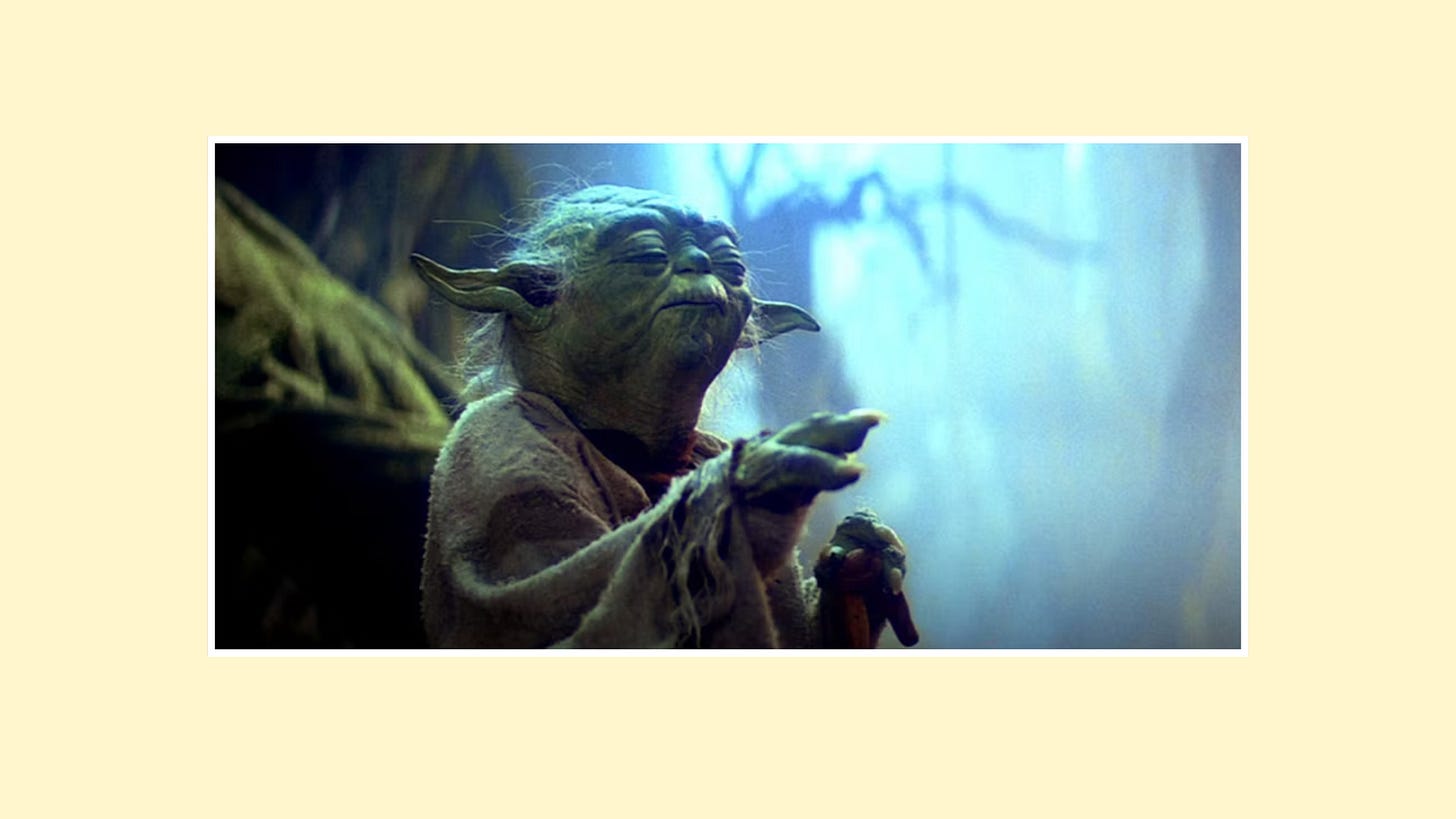Perspective & Composure in Stressful Moments
A space to be proactive about your stress-response methods.
Image: Surf’s Up - Sony Pictures Animation
When a stressful moment hits:
How do you respond?
What do you say to yourself?
How do you direct your attention to what is important in the moment?
How do you direct your attention to what is important when you have a moment?
—
How about Chicken Joe?
The beauty within the idea of taking time to be proactive about your relationship with stress is that each of us has the capacity to train ourselves to have our own unique, healthy response. While each stressful scenario is different, we can all benefit from equipping ourselves with mental tools intended to help handle the various stressors that life provides. For some, we can use preparatory imagery to envision possible outcomes and generate an action plan, and then others are impossible to predict. Yet even for the unpredictable, we are still able to buffer ourselves by exercising acceptance and being open toward that uncertainty that life is largely characterized by, for example.
-
It’s worth noting that some of the stress that we encounter in life can be “good” or facilitative, known as eustress. Then, there is the other, harmful stress that we look to minimize, known as distress. And of course, the amount of each is going to fluctuate along a spectrum as we navigate different points of life.
-
For the eustress in your life, it helps to recognize it’s utility and let it be for now. See what happens as you pay attention to it’s utility and reassess later on. For the distress in your life (often times uncontrollable or unforeseeable), the goal is to recognize it and then find a process that works for you to minimize it; or to get rid of it altogether.
-
As well, there was a recent study which supported that having ritualized behavior showed to improve self-control under pressure (Yun D. et al., 2023). It goes along the lines of another study that refers to this kind of preparation as pressure training (Low W. et al., 2023), and though these studies were both conducted within the context of competitive sport, it doesn’t feel like a stretch to extract that this kind of mental preparation has benefits and the potential to give you more power and a sense of control in tough situations.
-
Other professionals guiding the research on stress-response, such as Alia Crum, have built on the foundational stress-related concepts understood by early scholars such as Hans Selye and Walter Bradford Cannon, adding to the contemporary understanding of the stress-is-enhancing mindset and paving the way for methods to channel stress and embrace it’s inevitability.
-
One thing is for sure: stress is going to be a part of the journey. So, why not form a greater understanding of how you perceive stress and how you choose to respond?
Exercise
<> Pt 1. Stress-Perception
This is the initial awareness-building part where the participant looks to gain a deeper understanding of how they perceive the different stressors in their life. To get things flowing, draw a line down the middle of a piece of paper and take an inventory of the different stressors in your daily life, identifying which are eustress on one side and distress on the other.
Writer’s note: Be easy. Each of us has stressful things going on and it’s not “abnormal” to be exposed to many kinds of stress. You may also not be able to think of many, sometimes it’s like that. No judgment, just curiosity.
<> Pt 2. Stress-Response
Here’s the part where you get to choose how you want to respond to different stressors. Below you’ll find five suggestions; some for “in the moment,” and some for “when you have a moment.” These are methods that I’ve come across through the literature as well as others that have just been helpful for me upon reflection. If you have others that work for you that you’d be willing to share, I’d love to hear about it in the comments or via direct message.
Note: The findings from the two studies mentioned earlier are very relevant throughout the following set of ideas. Both Yun D. et al. (2023) with creating a ritualized behavior sequence in advance of stressful moments, and Low W. et al. (2023) with pressure training yourself to be prepared for high-stakes moments prior to their occurrence. The way I conceptualize it: this is building a space to think about and prepare a proactive response, rather than a reaction.
Note: your response will vary based on the type of stressful moment. There are many unforeseeable stressors of varying degrees, and often it’s best to give yourself some time to feel and experience the moment. Whenever you’re up for it, here are five ideas to explore:
#1 — 🔍 Channeling Focus to What is Important Right Now
In the moment: Just like your body’s response to funnel resources to it’s vital organs in times of stress, it helps to channel your attention into a singular focus on “what is important right now?”
Is it an action? Is it taking a moment to slow down? Take time to listen to your body and assure yourself that everything else can wait for now.
In this context and otherwise, I’ll often schedule a time to think about the other “stuff” down the road so I can clear up space for the present moment.
Pause and take a moment to respond rather than react.
-
#2 — ⭐️ Showing up Authentic
In the moment: When in doubt, bring your values. Put what you care about most front and center. Feeling anxiety about a public speaking event? Remind yourself how proud you are of yourself that you got this speaking gig. Feeling upset about a hardship your good friend is going through? Remind yourself how much love you have for them and for who they are (bonus: let them know). View the situation with a values-based lens and let what matters guide the way.
Anecdote: There was a time in high school where my best friend gave me some strong guidance in a moment of high-stress: “be you.” Stand in who you are.
-
#3 —🪞 Viewing Stress Objectively - Data to Build Awareness
When you have a moment: I’ll often take a moment to recognize when I’m in a difficult time and take it in. Then, it helps to write it out and involve that tactile sense, to both acknowledge the repetition of working through that tough moment and to separate myself from the stress.
Sorting the stress as either enhancing or debilitating is a key piece here, as not all stress is necessarily “bad.”
Ask yourself: Which stressors are eustress and which are distress? What can stay for now and what should go? How can this information be used for growth?
-
#4 — 💡 Customizing Your Own “Flip the Switch” Mode
When you have a moment: In a way that fits your style, lay out your process for shifting your mindset into “handle” mode. Whichever methods you choose, the goal is to shift into a productive state of mind where you’re focused on “handling it,” and nothing more.
Ideas:
Connecting with the breath (4-7-8; physiological sigh; color breathing)
A self-talk phrase (“I’m stressing and I’m going to work through it by _____”)
Physical cues (Fixing your posture, rolling your neck, dapping yourself up)
Playing your favorite song
A brief centering stretch
-
#5 — 💭 Leveraging Your Future-Self
When you have a moment: Think about your future self and get detailed about what you would want people to say about how you handled a given scenario. Think about “how well [Rick] handled himself in that moment,” or “how strong [Mindy] must’ve been to conquer that setback.”
Envision yourself doing it, then ultimately, do it. Make it true.
Bottom Line
It helps to think about your process for handling stress. The nature of a “stressful moment” certainly varies, and, the way that you approach and handle them will effectively build your character. You can learn a lot about someone by how they respond (or react) to stressful situations.
—
Whether it’s a tough conversation, attending to an accident that was witnessed while out in the world, finding out difficult news, or anything else, building a process can help you to answer: what tools can I use to draw on for strength, grounding, and assurance in this difficult moment?
—
Lastly, building your stress-response process ahead of difficult moments will enable you to have repetitions of composing yourself in advance of a stressor. That’s not to say that it will guarantee anything, but my take is that taking proactive measures surely gives more power to you.
Let me know what you think.
Stay well,
☀︎ Mike




I’m going to save this because while I’ve thought up rituals for so many important life moments, a process and ritual to prepare for stressful moments is probably the most important one!
Good read!